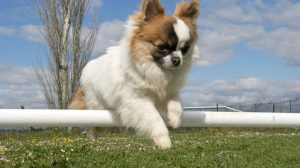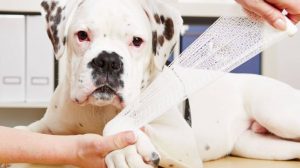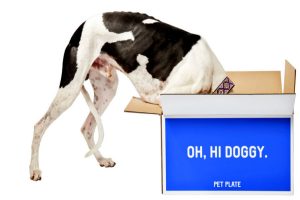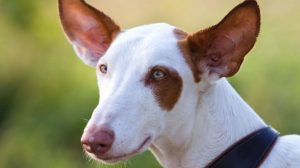A herniated disc in dogs can be an uncomfortable and, above all, painful affair. But what are the symptoms that indicate a herniated disc in a dog?

A herniated disc in dogs is not easy for owners to recognize because its signs are varied. The symptoms that occur depend on how severe the herniated disc is and at what spine level it happens. Below you can find out what symptoms a herniated disc could be and when you should take your four-legged friend to the vet for advice.
What is a herniated disc?
To recognize herniated disc symptoms in dogs, it is essential to understand the condition. In dogs (and in humans and other mammals), there is an intervertebral disc between each spinal vertebra. This consists of a soft, gelatinous mass surrounded by a firmer, cartilaginous ring. The intervertebral disc serves as a shock absorber between the bone-hard vertebrae. If there is a herniated disc, the inside of a disc – i.e. the gelatinous core – literally falls in front of or out of the surrounding ring. The intervertebral disc then presses on the spinal cord and the nerve cords.
A herniated disc in dogs: these are symptoms
The first sign that can indicate a herniated disc in dogs is pain. You can tell if your dog is in pain, for example, because he doesn’t enjoy running around as much or moves much less than he usually does.
You may also notice a change in your dog’s movement pattern or protective posture, such as a hunched back. Another indication of pain from a herniated disc can be that your dog is overly sensitive to touching the spine and may even show aggressive behaviour.
Severe symptoms: signs of paralysis
In the case of more pronounced herniated discs, there can also be signs of paralysis on the front or hind legs. You can recognize such a paralysis symptom, for example, when your dog drags its leg. In dachshunds and breeds prone to so-called “dachshund paralysis”, the hind legs are often unable to move.
In some cases, there is also the so-called “dog-sitting position”, in which the hind legs are stretched out backwards. Depending on the location and extent of the herniation, a herniated disc in dogs can also affect the function of the bladder and bowel sphincters. Unplanned urination or defecation occurs when the nerves are affected by the herniated disc.
You can find out what you can do for your four-legged friend in this case in the guide: “Herniated disc in dogs: treatment”.









